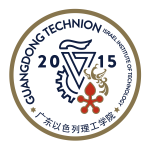Guangdong Technion - Israel Institute of Technology (GTIIT), China & Technion-Israel Institute of Technology, Israel.
The Physics Program (group of Asst. Prof. Khadga Jung Karki) is looking for 1 PhD and/or Master student to conduct experimental research in understanding the effects of femtosecond laser pulses on the conductivity of dielectrics and wide bandgap semiconductors. Thesis work period for the PhD student is three to four years. Fellowship is 60,000 RMB/year and increases to up to 108,000 RMB/year in the final year depending on the performance. Thesis work period for the MSc student is two to three years. Fellowship is 42,000-54,000 RMB/year depending on the academic performance. The PhD student will spend one year and the MSc student will spend 6 months at Technion, Haifa. Fellowship will be increased during this period. Check https://sites.gtiit.edu.cn/research/graduate-studies/fees-finance/ for details.
Two photon absorption by semiconductors is a well-known phenomenon in nonlinear light matter interaction. This effect can induce photocurrents in photodiodes. Such effects have also been useful in the characterization of ultrashort pulses. In this project, we aim to investigate even higher order nonlinear absorption in nanostructures of wide bandgap materials that have band gap higher than the combined energy of three photons. Photocurrents in the perturbative and beyond perturbative (nonperturbative) nonlinear regimes will be explored. The experimental work will be supplemented by theoretical calculations done by the group of Prof. Marcelo Ciappina at GTIIT. The results are expected to be important in understanding the role of high-power ultrashort pulse lasers in inducing electric field controllable electro-optical switches. We are looking for students with experience in optics and spectroscopy and keen on carrying out challenging research in nonlinear spectroscopy.
Femtosecond lasers; attosecond control of electron dynamics in solids; phase modulation
- Bachelor’s/Master’s degree in physics, electrical engineering or material science (essential).
- Experience in optics and different forms of spectroscopy (preferable).
- Familiarity with programming languages (c, c++ , matlab, python, etc. ) and proficient in one of them (essential).
- Ability to author scientific reports and papers (essential).
- Good communication skills and strong command of English (essential).
- Ability to work independently as well as in a team environment (essential).

